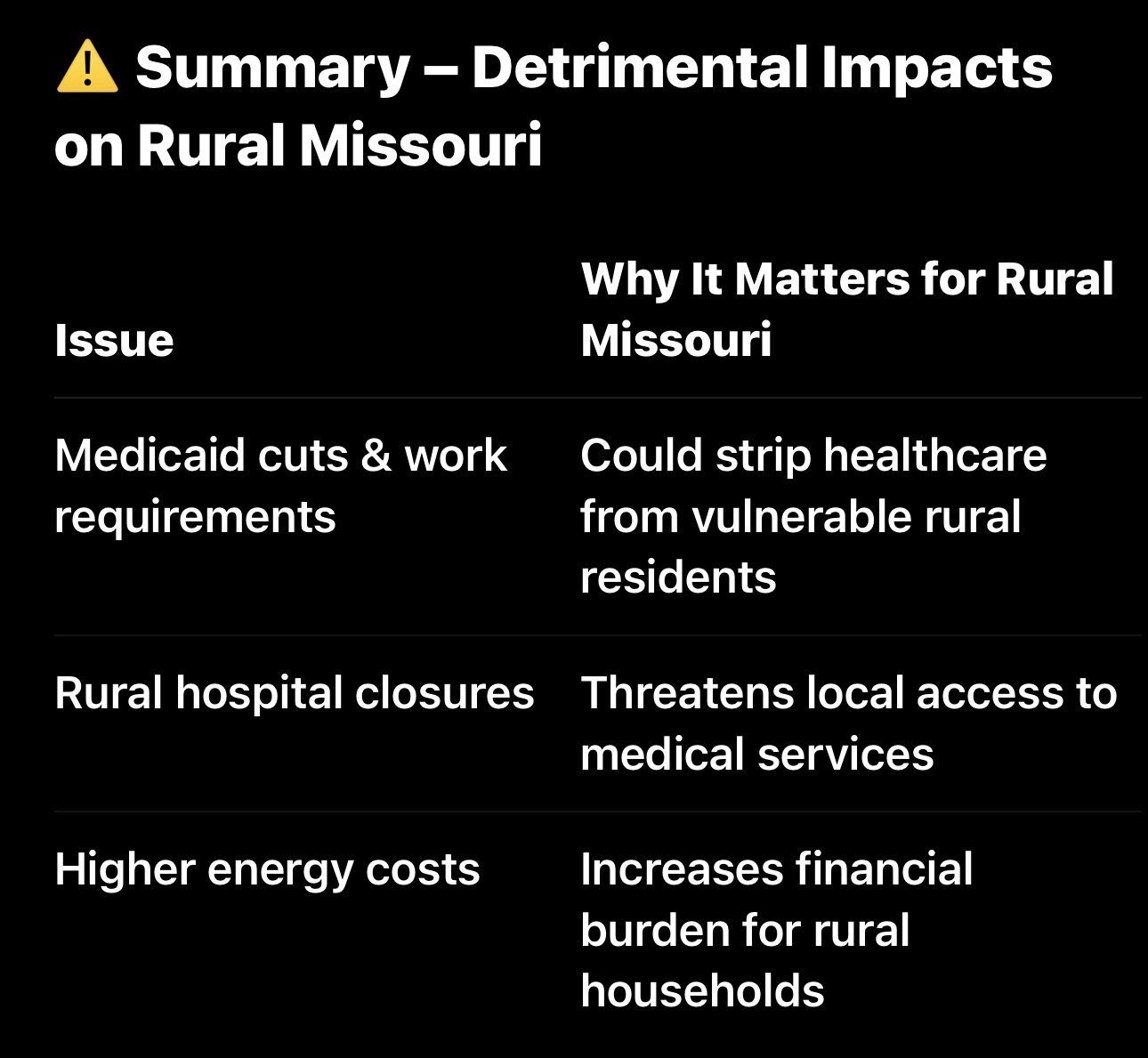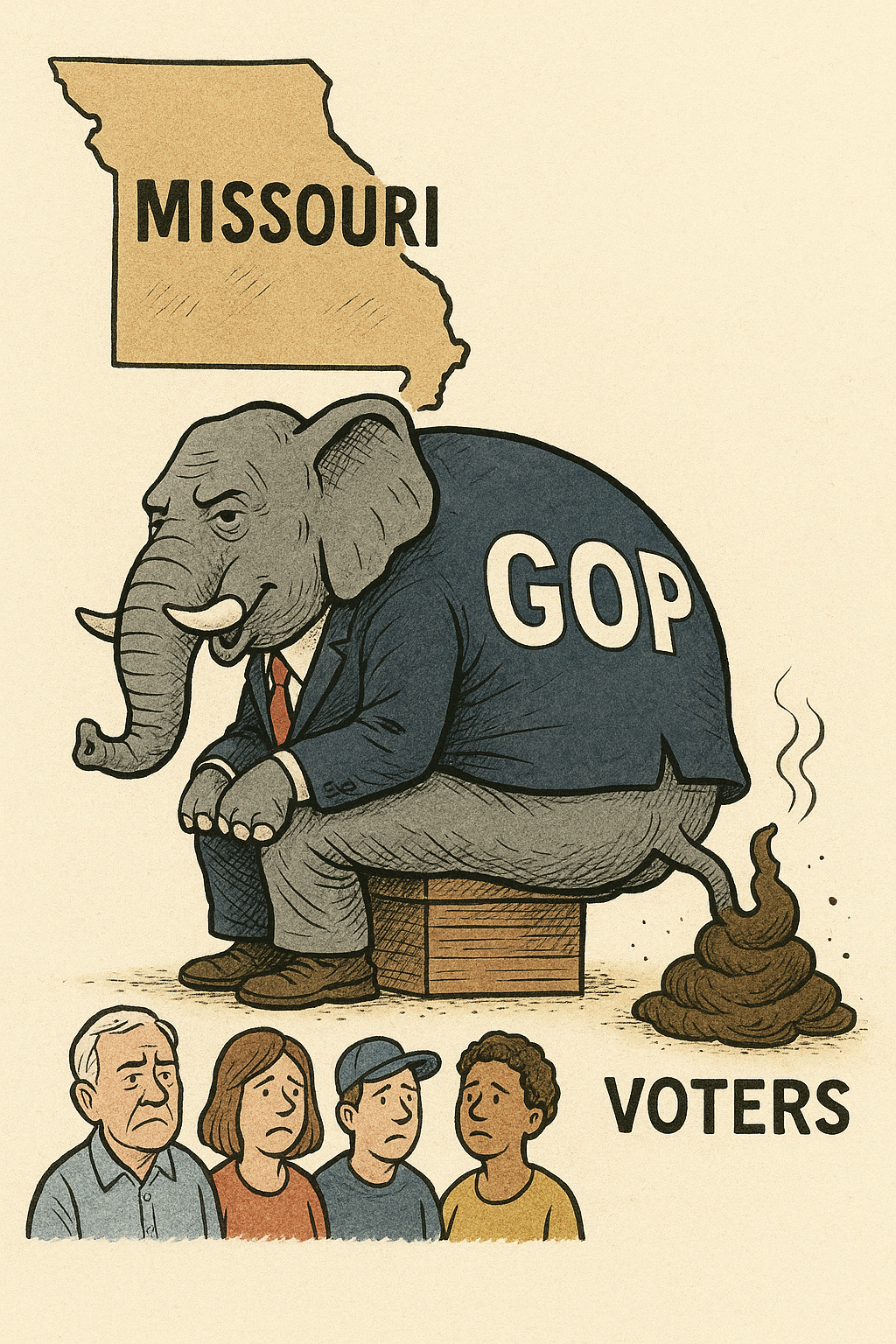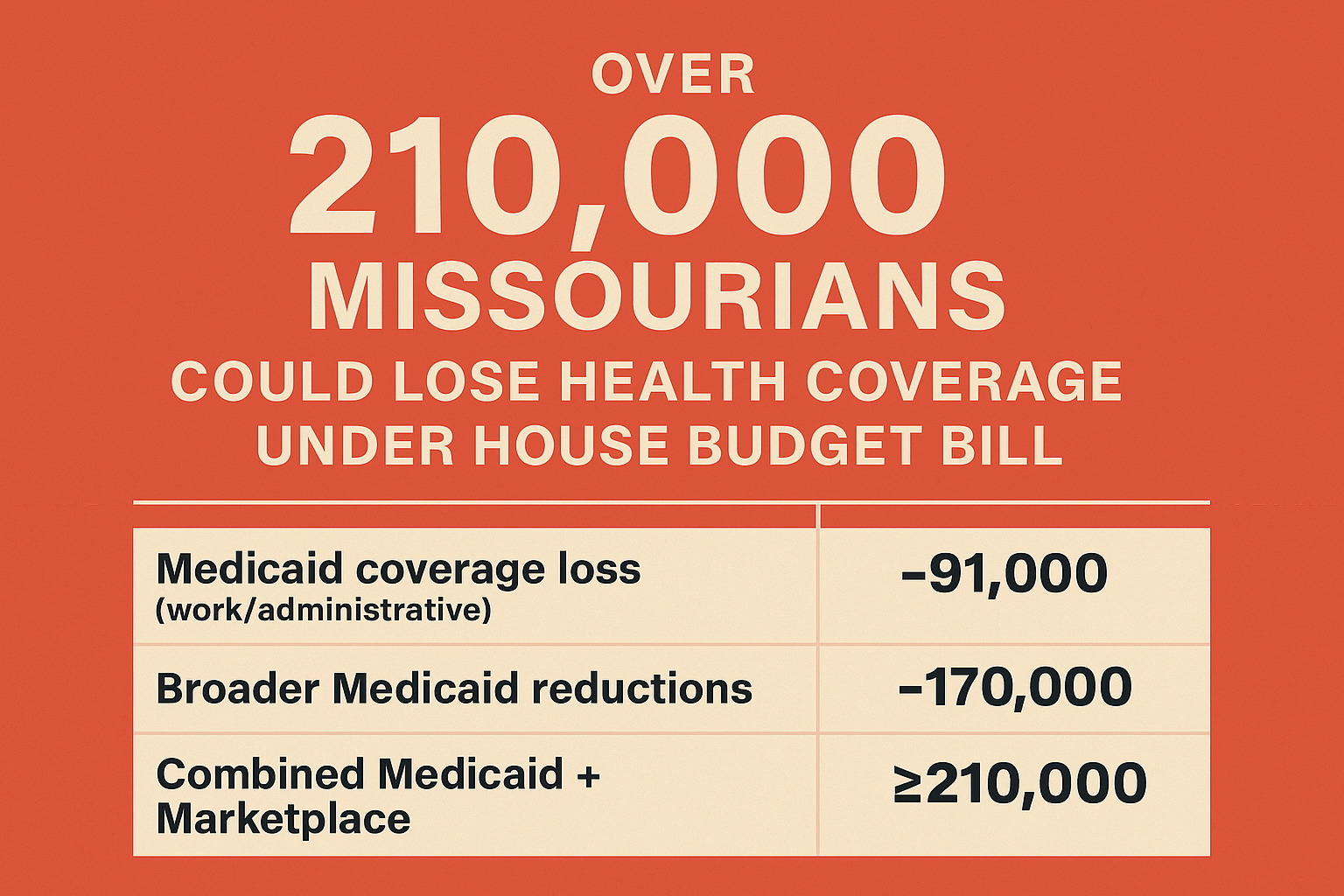Month: July 2025
-
Big City Donors Back Alford, Rural Missourians Feel Left Out
A new review shows Congressman Mark “Awful” Alford’s campaign bankrolled by big-city and corporate PAC money, while rural Missourians’ concerns go unheard. Challenger Ricky Dana, a native rural Missourian turned candidate, argues it’s time for real local representation.
Written by

-
Trump Fires 16 Immigration Judges, Misallocates $3B Budget
Despite Congress approving over $3 billion to hire and train immigration judges, the Trump administration fired 16 of them—slowing cases and harming Missouri families and Americans nationwide.
Written by

-
7-11-2025- Updates on Votes from Our Current Missouri Congress Members that are detrimental to Missouri-4 and the rest of our state.
Missouri Congressmen backed the GOP reconciliation package—including Medicaid cuts and work requirements—that threatens healthcare access for rural Missourians… (read more.)
Written by

-
🚨 ATTENTION MISSOURI! 🚨
🚨 ATTENTION MISSOURI! 🚨 Recently, Congress rammed through the “One Big Beautiful Bill Act” — a sweeping tax-and-spending package that permanently locks in Trump’s 2017 tax cuts for the well-off while slashing critical supports for working families. The majority of our current Republican leaders in Washington — including Speaker Mike Johnson and Missouri’s GOP delegation…
Written by

-
The Big Bloated Bill has passed — but that doesn’t mean we’re powerless.
The Big Bloated Bill has passed, but Missouri families aren’t helpless. Here’s how to prepare for rising energy costs and Medicaid cuts — and how to join the fight to reverse the damage.
Written by

-
⚠️ Energy Prices Set to Spike in Missouri After Trump-Backed Budget Passes
By Ricky Dana | July 3, 2025 Today, Republicans in Congress rammed through the so-called Big Beautiful Bill—and with it, they guaranteed that Missourians will pay more for electricity, propane, and gas in the months ahead. This massive Trump-backed budget isn’t just a slap in the face to working families—it’s a handout to corporate polluters at your expense. Experts…
Written by

-
Over 210,000 Missourians Could Lose Health Coverage Under House Budget Bill
The House’s version of the 2025 budget bill — the so-called “megabill” — threatens to strip health coverage from over 210,000 Missourians, gutting both Medicaid and Marketplace subsidies. These cuts would disproportionately affect working families, seniors, children, and people with disabilities, especially in our rural communities. 🚨 Who’s at Risk? These cuts are driven by: 💡 Why This Matters…
Written by
